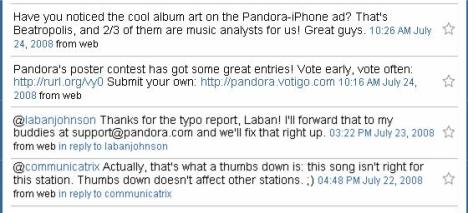Listening to Science Friday last week, I was intrigued by a segment about how our ubiquitous use of smart phones is actually decreasing our creativity.
The basic premise here is that every second that we’re not engaged at work or doing chores or other responsible things, we’re using our phones to play games or network or watch videos.
Consider this WNYC article referenced during the show, which says:
Fifty-eight percent of American adults have a smartphone today. The average mobile consumer checks their device 150 times a day, and 67 percent of the time, that’s not because it rang or vibrated. Forty-four percent of Americans have slept with their phone next to their beds.
So what’s the big deal? Well, we’re filling our brains up with nearly passive, slack-jawed “entertainment,” and we’re losing our ability to let our minds wander. The continuation of the premise is that this is affecting our ability to think deeper – or in some cases at all. Their argument is that in order to get creative, often we have to get bored first. We have to have nothing else to do and THEN we turn our brains on. It works for some, a study from last year showed that “Most men would rather shock themselves than be alone with their thoughts.”
But kids do get bored. I did it, my kids do it, and I’m sure you did it. But remember that at some point you hit a rock bottom on boredom, which launched into some creative game, process or endeavor. I’m going to assume here that you don’t permit your small children to play on devices ANY time they want. But, are we missing out on all that as teens and adults?
I used to tell my nephew all the time that I never got bored, that I always found something to do. That was at the time of my life when I was playing and writing A LOT of music. Before that I had been doing a lot of theater. Before that it was writing or role playing games or LEGO. It was something.
That was before I had all these responsibilities where my free time was just long enough to annoy me, but not long enough to get involved in anything. I’m thinking of that space between getting home from work and getting dinner ready. That few minutes between cleaning up the dinner dishes and getting the kids ready for bed. Those minutes between getting the kids in the bath and then having to get them out again.
Or I’m stuck in the car on my long commute. Boring, maybe, but not the best time to learn to play the violin, for instance. So, that’s my problem. Even my time in the car is often spent listening to NPR or podcasts. I never just drive silently and think – again, it’s partial thinking. I still have to drive (yawn).
New Tech City has paired with the phone app Moment to help people rethink your relationship with your tech and is developing a Bored and Brilliant project to “help you detach from your phone and spend more time thinking creatively.”
Moment helps you track the time on your phone and lets you set timers to better manage your time. Want it to ding you after 10 minutes on Facebook? Goes quicker than you thought, I bet. It’s interesting and I’m going to try it out. Had a family feature too…Hmmm.
Of course, critics of the radio piece and project have focused intently on the word “boredom,” which they feel isn’t accurate for what we’re talking about. Boredom is more, they say, than just not having anything to do. But I think they’re arguing semantics. Anecdotally it makes very clear sense to me, and I applaud the effort.
Challenges kick off Feb 2 – are you in?
Filed under: Internet, Mobile, Off the Grid, Social Media, technology | Tagged: boredom, creativity, moment, new tech city, science friday, scifri | 1 Comment »







 And I’m not alone:
And I’m not alone:



 This post originally appeared on the
This post originally appeared on the  Blog Catalogue
Blog Catalogue Forward Blog
Forward Blog LinkedIn
LinkedIn Power150
Power150